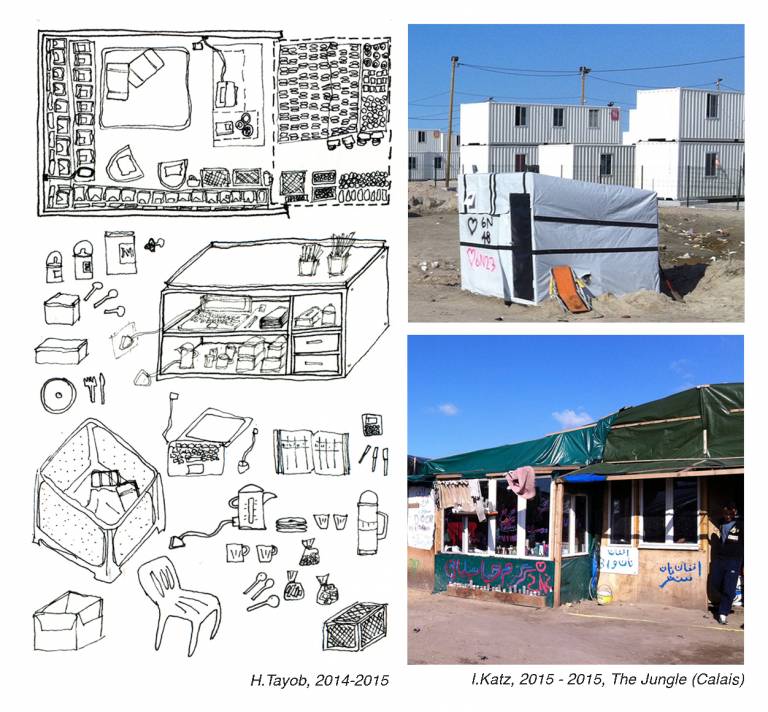Infrastructures of Care: Spaces of Displacement and Refuge
01 February 2019, 10:00 am–8:00 pm

Infrastructures of Care is a symposium and exhibition at The Bartlett School of Architecture and the Institute of Advanced Studies, UCL
This event is free.
Event Information
Open to
- All
Availability
- Yes
Cost
- Free
Organiser
-
Dr Huda Tayob, Dr. Irit Katz, and Dr. Giovanna Astolfo – Giovanna.Astolfo.13@ucl.ac.ukI.Katz@Lse.ac.uk
Location
-
IAS Common Ground, Ground floor, South Wing& The Bartlett School of ArchitectureUCLLondonWC1E 6BTUnited Kingdom
We aim to foster a conversation which brings together academics, activists, NGOs and spatial practitioners on questions of infrastructures of care relating to forced migration. The intention is to explore the various spatial, material, human, and humanitarian entanglements of provision created for and by displaced people.
Experiences of forced displacement and migration are profoundly shaped by the places where people find refuge and support. While the refugee camp dominates spatial studies, today around 60% of the world’s forcibly displaced live in urban areas and the city has been recognised as a particularly important host to refugees. In addition, as more than 80% of refugees live in developing countries, humanitarian concerns of protection and support are closely entangled with the social, political, and economic contexts of local populations. The broad array of formalised and informal spaces of displacement and refuge, along with the ever-changing infrastructures of care and provision often destabilise the meaning of concepts such as shelter and relief. While foregrounding the role of space, this initiative takes as a starting point the infrastructures of care which are varyingly understood as spatial, human, material and institutional mechanisms of support and agency, as well as of control and restriction. This event engages with concepts of infrastructures and care across scales and spatial forms, in relation to the intimacies of daily life and at the level of broader legal, economic, humanitarian and state planning systems.
 Close
Close

